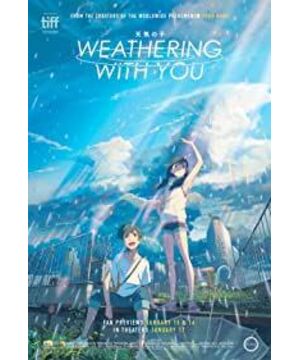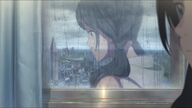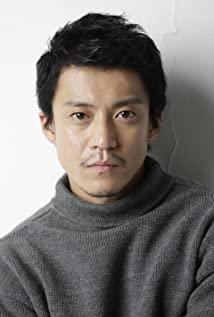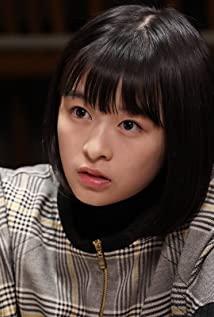Makoto Shinkai's new commercial film structure.
After "Your Name", Makoto Shinkai finally began to perfect its new film structure. The previous movies "Five Centimeters Per Second" and "The Voice of the Stars" are more similar to poems. The stories are almost completely dependent on the idea. In short, the story is not a good story. Some "empathy".
Obviously this model cannot satisfy the new era - the age of images. The audience that would sit quietly in a movie theater and read a dull story has disappeared, in the same logic as the rarity of reading books. People will accuse the times of being "impetuous". In fact, this kind of word seems to be just emotion rather than analysis. I can stand in any era in the past and say that people are "impetuous", just like the old lady in Lu Xun's novel scolding her children and grandchildren for the "generation". Not as good as a generation", this kind of assumption of a beautiful era in the past is mostly the reconstruction and shaping of people's childhood memories.
The image age is not mentioned here for the time being, it is a philosophical thing. Let's talk about Makoto Shinkai's new "model" (which hasn't really changed much).
Nasu Mushroom likes to say that his works are all "boy meets girl" stories. What is the "underlying logic" of Makoto Shinkai's story?
It is the evoking of "love" in this post-industrial age. Why is it called conjuring, because he feels that love is actually far away.
How does this story unfold? Let's look at the structure:
1. Torii in an abandoned building. I guess this will be the story logic of his later movies. The building is the epitome of the post-industrial era, or in layman's terms - modernity; and the torii gate is a kind of representative of traditional Japanese culture. These two images are obviously in conflict, and grafting them together is the story of "Your Name" and "Weathering With You", where myth meets the magical reality of industry.
In addition, Makoto Shinkai's "love" is represented by two scales, "time" (your name), "space" (the voice of the stars, speed 5 per second), this is an old saying, distance produces beauty, or distance Let people "reflect".
2. Both films have the heroine's "miko" background, which symbolizes a distant "tradition". And what about the male lead? I boldly say a "suppressor". Taki Taki has a certain "ideal complex", he is brave and aggressive, a little love for Okuji, and the fatigue of the reciprocating life (going to school, working), he is the common people under the big background of "Tokyo". The appearance of Mitsuha (Miko) is a emancipator gesture, borrowing the form of "soul exchange", Taki Taki came to the countryside, felt the culture of the witch, and listened to some of Mitsuba's life philosophy (related to time), because I haven't rewatched it now, so I won't sort it out. After losing contact with Mitsuha, he said, "What have you been looking for?" Is it just Mitsuba? Not simply. The theme of "Your Name" is "dream", he is looking for a "splendid dream", a kind of spiritual liberation brought by Sanye, a metaphysical value that the secular public likes most - that is "love". As for Hodaka in "Weathering With You", it is simply a replica of Taki Tachibana. Their encounters are specially arranged in the film, and it may be mirrored that they are the same person. The combination between the hero and the heroine is a "compromise between reason and reality", the spiritual call of a naturally sensual person to an alienated person.
3. "Alienation" in Weathering With You. This is not Marx's alienation, it should be called "human interest centrism", the weather is not good or bad, people guess the climate that has been thousands of years in a hundred years, artificially give it meaning, Tokyo used to be a lake, its shortcomings are Not conducive to the development of human cities, this is the conflict in the middle of the plot: Yang Cai or good weather? Love or profit? In fact, this is completely a "non-relational relationship". If it is directly weighed on a utilitarian scale, it is just as paradoxical as "the square of a circle". Trade a child for good weather in the city, then, people think so! Uncle said so. Value should not be measured in this way. Some people say that it is "liberal value". In fact, his level is very low, staying at the level of "freedom is arbitrary". This film is just a set of practical moral problems, that is, "to be or not to be." We like to judge ethical issues as an "absentee", but you are not in it, and your judgments only treat morality as an object like a table and chair, and morality is not in the moral law.
4. Tragedy. Hegel said that tragedy is the conflict between two kinds of good, and the climax of this film reflects this. Some people say that there is any comparison between the mere love and the urban civilization? Don't forget that little love is "love", and love, as an abstract universal, is contained in all concrete and special "loves". The resolution of the tragedy is the compromise of both parties or the complete destruction of one party. Of course, this film is to sacrifice first and then compromise. So it became a comedy again. I don't want to talk about the funny joke that "comedy is tragedy at its core". The soil of comedy is "victory", the soil of tragedy is "disaster", and comedy is a higher form than tragedy: the objective world is still maintaining its original appearance, but because the internal emphasis of the subject has shifted, the objective world looks like it has been transformed General.
5. The sacrifice of the witch. "Sacrifice" is a theme, Yang Cai sacrificed in exchange for good weather, we sacrificed "tradition" in exchange for a modern "good weather", but unfortunately it is a modern spirit that is extremely desolate, just like the dilapidated building in the film . We believe in bullshit "love", those vulgar literature and jokes either distort love into vulgar desires of both sexes, or it is a kind of conquest of blood and fire, marriage is bad, it is a property relationship, it is a kind of speed Food and spiritual consumption. But it also breeds hope, that small torii that looks like spring flowers blooming, always sunny, that is the call of ancient times, the spiritual reflection on civilization, Xin Haicheng's call for "love", he It uses the smallest and largest theme of "love" as its interpretation, saying that it is the smallest, because it only needs two people, and there is love; it is the greatest, because it can become the highest value for all people to live in harmony. The Master said: "I want benevolence, and Siren is the best." In the end of the movie, it was changed to Yangcai. Makoto Shinkai is optimistic. He believes that he can call back "love". At least, increase the fertility rate in Japan. They are too aging serious,,,
6. We have indeed changed the shape of the world. Everything before has turned into a hug that made us cry with joy.
I haven't written for a long time, there is still a lot to write, too tired, more than 620 comments, nothing to do with me, just write here.
—Ladies of the Light Path 2019.11.2
View more about Weathering with You reviews











